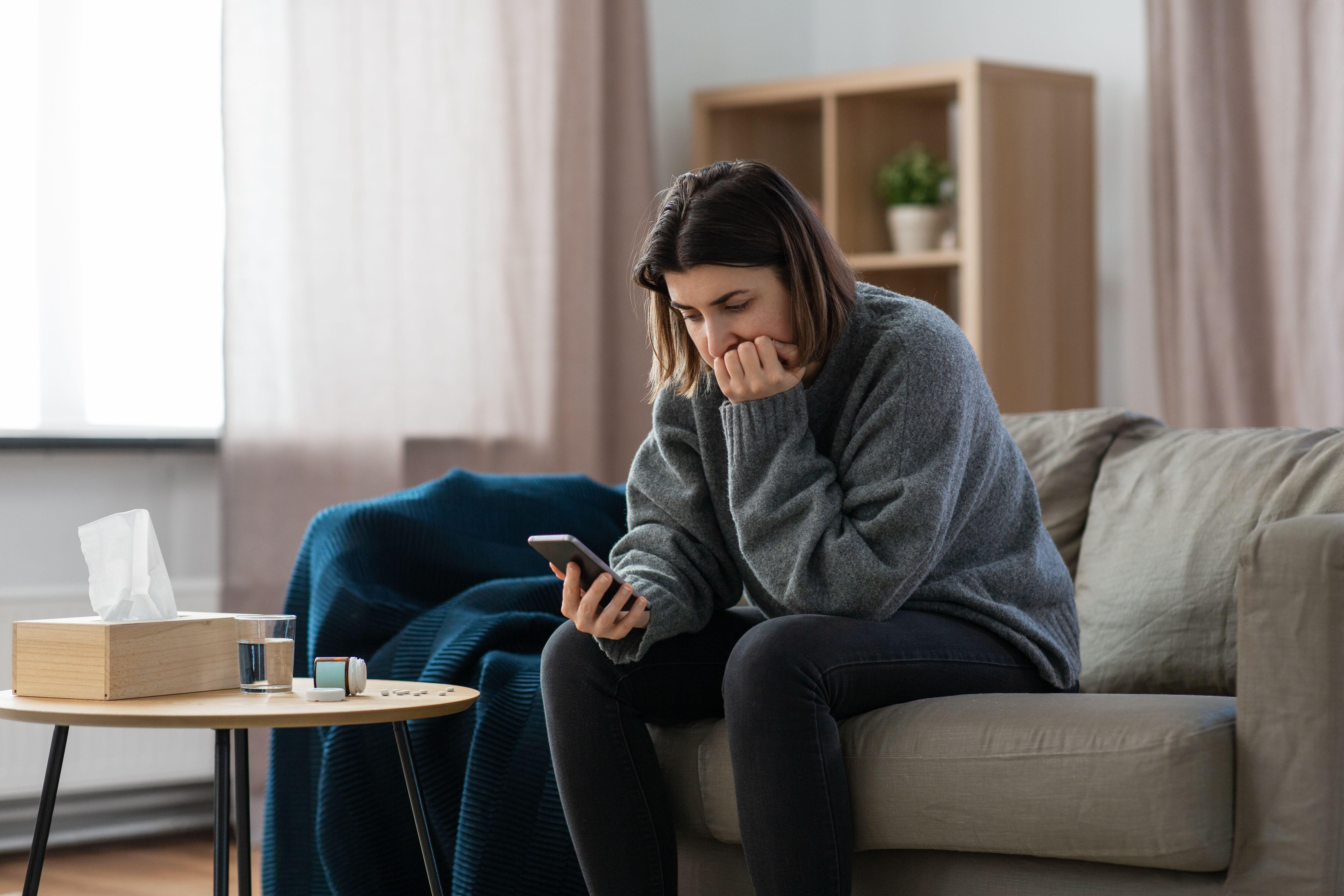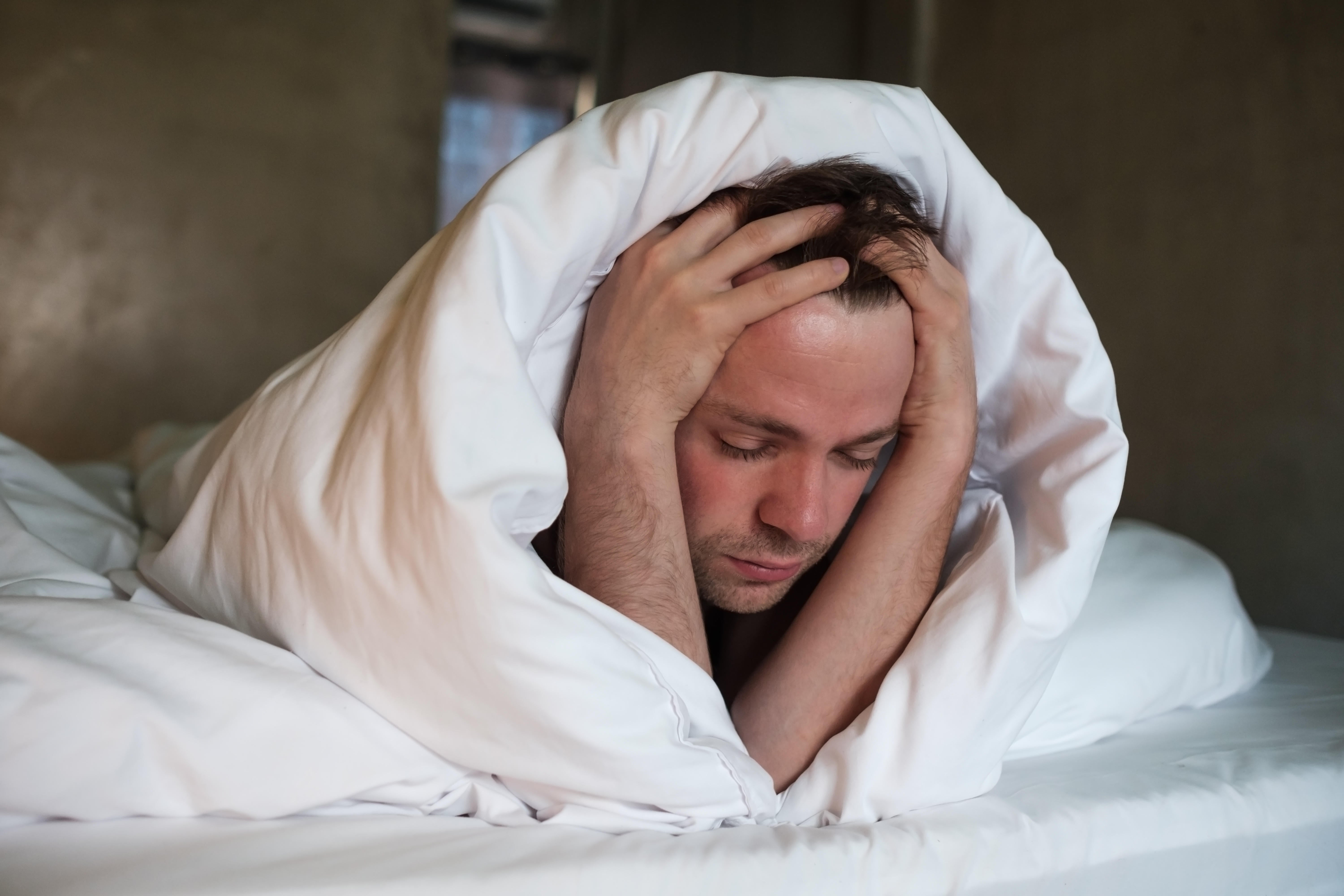US elections: A psychiatrist’s guide to not doomscrolling all night
Make sure you get some sleep

Your support helps us to tell the story
From reproductive rights to climate change to Big Tech, The Independent is on the ground when the story is developing. Whether it's investigating the financials of Elon Musk's pro-Trump PAC or producing our latest documentary, 'The A Word', which shines a light on the American women fighting for reproductive rights, we know how important it is to parse out the facts from the messaging.
At such a critical moment in US history, we need reporters on the ground. Your donation allows us to keep sending journalists to speak to both sides of the story.
The Independent is trusted by Americans across the entire political spectrum. And unlike many other quality news outlets, we choose not to lock Americans out of our reporting and analysis with paywalls. We believe quality journalism should be available to everyone, paid for by those who can afford it.
Your support makes all the difference.The US election will capture the attention of people all around the world, but this one even more so.
It has become far too easy to get sucked into a rabbit hole of Trump and Harris news articles, memes and Tweets – and algorithms help facilitate these binges.
But should we be setting limits on how much election content we are consuming?
Here, a psychiatrist explains the consequences of ‘doomscrolling’ – the act of spending a lot of time reading negative or distressing content – during an election, and how to stop it affecting your wellbeing.
Mindlessly scrolling through our phones during an election is very addictive and is usually provoked by a combination of psychological and social factors.“This might start off with a desire for information as people often feel the need to stay informed of current events,” explains Dr Sheethal Rajashanker, a consultant psychiatrist based at Priory Hospital Cheadle Royal and Priory Wellbeing Centre Manchester. “For some people doomscrolling provides a false sense of control over uncertain situations.”

“Social media algorithms are designed to maximise engagement and this can create a feedback loop where users are continuously exposed to alarming news,” says Rajashanker. “And for those who are already experiencing anxiety and stress, doomscrolling can serve as a coping mechanism.”
Why is this election in particular drawing so much attention?
“The 2024 US presidential election is drawing extensive attention online for several reasons including high profile issues, tight competition and a polarised political landscape,” explains Rajashanker. “These factors, combined with heightened online engagement and the rapid spread of news and rumours, contribute to this election’s significant online presence.”Social media is playing a central role in this.
“Platforms like X (formerly Twitter), Instagram, and TikTok are amplifying the voices of both candidates and grassroots campaigns,” notes Rajashanker. “This widespread reach has encouraged debate, activism, and sometimes controversy, making this election highly visible in people’s feeds.”
Does doomscrolling election content impact your wellbeing?
“Doomscrolling can be detrimental to your wellbeing for several reasons,” forewarns Rajashanker. “For example, constant exposure to negative news can heighten feelings of anxiety and stress and can create a sense of impending doom and helplessness about current events.“Regularly engaging in doomscrolling can also lead to mood swings, irritability, and feelings of sadness or despair, impacting overall emotional health.”
It can also be detrimental to your sleeping pattern.
“Consuming distressing content, especially before bedtime, can disrupt sleep patterns, leading to difficulties in falling asleep or experiencing restful sleep,” explains Rajashanker.

Mindless scrolling during a period of heightened political tension – such as an election – could also impact your relationships.“If doomscrolling leads to avoidance of social interactions or discussions, it can result in feelings of loneliness and isolation,” highlights Rajashanker. “On the other hand, engaging in heated discussions or arguments about political or social issues can strain relationships with friends and family.”
In addition, doomscrolling often develops into an unhealthy mechanism.“For some, doomscrolling becomes a way to cope with anxiety or uncertainty, but it often exacerbates rather than alleviates these feelings,” she adds.
Is there any content we should avoid during an election?
“People should try and avoid and be aware of sensationalised news, polarising political content and unverified information,” warns Rajashanker. “People should also be mindful of the impact of frequent notifications about breaking news as these can create a sense of urgency leading to anxiety.
“Negative social media feeds and graphics or distressing imagery can be particularly triggering and harmful to mental health.”
How do you keep track of election news without it taking over your life?
“To promote better mental health, it can be helpful to establish boundaries around consumption, engage in self care activities and seek out positive or constructive content,” advises Rajashanker. “Mindfulness practices, such as meditation or limiting screen time, can also be effective strategies to mitigate the negative effects of doom scrolling.”